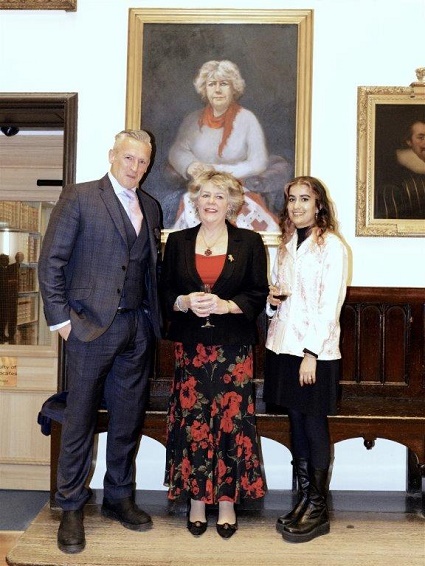The Lord Justice Clerk to retire next year
19 Jun

Roddy Dunlop KC, Lady Dorrian and portrait painter Grace Payne-Kumar
LADY Dorrian, the first woman to be appointed Lord Justice Clerk, has announced her intention to retire next year at the same time as the Lord President.
“With both the Lord President and the Lord Justice Clerk now retiring at the same time, this will be a substantial changing of the guard for the Judiciary and for the legal profession as a whole,” said the Dean of the Faculty of Advocates, Roddy Dunlop KC.
“I have already paid tribute to Lord Carloway, and I should add a similar tribute to Lady Dorrian. Her Ladyship has been a trailblazer since her time at the Bar, having been the first woman to be appointed as Advocate Depute. She went on, of course, to be the first woman to hold the post of Lord Justice Clerk.
“In recognition of her achievements and of the inspiration she provides to women in the law, Faculty recently commissioned a portrait of Her Ladyship, and this greets anyone entering the Advocates Library from the Great Hall in Parliament House. Both as counsel and as a judge, she has played a significant part in the shaping of the modern law of Scotland. All at Faculty wish her a long and happy retirement,” said Mr Dunlop.
Lady Dorrian was installed as Lord Justice Clerk and President of the Second Division of the Inner House of the Court of Session in April 2016. She was appointed a judge of the Supreme Courts in 2005, having served as a temporary judge since 2002. She was appointed to the Inner House in November 2012.
She is a graduate of the University of Aberdeen (LLB). She was admitted to the Faculty of Advocates in 1981 and was Standing Junior Counsel to the Health and Safety Executive and Commission between 1987 and 1994.
Lady Dorrian served as an advocate depute between 1988 and 1991, and as Standing Junior to the Department of Energy between 1991 and 1994. She took silk in 1994. Between 1997 and 2001, she was a member of the Criminal Injuries Compensation Board.
During her time as Scotland’s second most senior judge Lady Dorrian has sought to improve the experience of complainers in sexual offence cases and how they are cross examined in court. This included overseeing the Evidence and Procedure Review project working group on pre-recorded evidence.